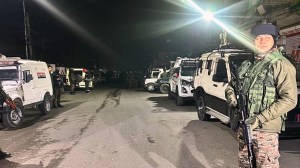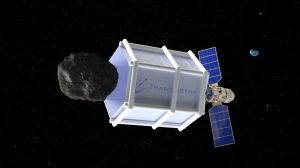Will take ‘any additional move necessary’ for growth: Arun Jaitley
Arun Jaitley met commerce and industry minister Suresh Prabhu, railway minister Piyush Goyal and NITI Aayog Vice Chairman Rajiv Kumar on Tuesday, along with top finance ministry officials, to discuss the economic situation.
 “We need excise revenues to push public investment, and if any state wants to reduce excise they can do so,” Jaitley said. (Source: PTI Photo/File)
“We need excise revenues to push public investment, and if any state wants to reduce excise they can do so,” Jaitley said. (Source: PTI Photo/File)
Finance Minister Arun Jaitley on Wednesday said the government will take “any additional moves as necessary” to support economic growth. Gross domestic product (GDP) growth has fallen to 5.7 per cent in April-June — the lowest in at least five quarters. Jaitley also ruled out the Centre cutting taxes on petrol and diesel, stressing that the government needs funds for infrastructure projects.
“We have taken note of all the economic indicators, which are available. This has been a pro active government. In terms of our own reform agenda and reacting to situations, we have been taking appropriate actions. We have been consistently moving on the reform agenda. We have taken note of all the indications which are coming,” Jaitley said.
“And over the last two days, I have held a series of discussions with some of my ministerial colleagues, secretaries and other experts within the government. Of course, the government will take any additional moves which are necessary. I am not in a position to announce today in the press conference. I will certainly be consulting the Prime Minister before that and when we decide, you will come to know,” he said when asked whether the government plans any stimulus for the economy amid falling growth.
Jaitley met commerce and industry minister Suresh Prabhu, railway minister Piyush Goyal and NITI Aayog Vice Chairman Rajiv Kumar on Tuesday, along with top finance ministry officials, to discuss the economic situation. The finance minister said discussions are still underway on what steps can be taken. “I am still discussing it. After completing the discussion and after informing the Prime Minister, whatever steps need to be taken, we will inform about them,” he said at a press conference after a meeting of the Union Cabinet on Wednesday.
With domonetisation and the roll out of the Goods and Services Tax (GST) disrupting the growth momentum in the economy, there has been speculation that the government may announce stimulus measures to invigorate growth. But the headroom for the government to expand its budget may be limited, as its finances are already under stress. The Centre’s fiscal deficit during April-July has touched 92.4 per cent of the full-year target of Rs 5.46 lakh crore in the current financial year, providing limited room to expand expenditure without derailing the fiscal math. During the year-ago period, the Centre’s fiscal deficit had touched 73.7 per cent of the full-year target.
There are also concerns on collections under the GST regime, especially since taxpayers are reported to have claimed Rs 65,000 crore as input tax credit. In a research report on Tuesday, State Bank of India said that the Indian economy has entered into a ‘prolonged slowdown’ and pointed out the urgent need for the government to step up public spending. In advised the government to step up short-term borrowings, as that would help in boosting expenditure without disturbing the fiscal math. The government can use a clause in the Fiscal Responsibility and Budget Management Act that provides for a 0.5 per cent slip in fiscal deficit targets, the report said.
During the April-July period, the government spent Rs 95,126 crore on capital expenditure, which is 30.8 per cent of the full year target of Rs 3.09 lakh crore. On demands to reduce excise duty on petrol and diesel, Jaitley said funds were required to push public investment and urged states to reduce their value added taxes (VAT) on fuel. Petrol price has crossed Rs 70 per litre in the national capital, despite global crude price dropping down to around $50 per barrel.
“We need excise revenues to push public investment, and if any state wants to reduce excise they can do so,” Jaitley said. The NDA government hiked excise duty on petrol and diesel by nine times in 2014-15 and 2015-16. Excise duty on petrol and diesel was Rs 9.48 and Rs 3.56 a litre respectively before the NDA government took office, which has gone up to Rs 21.48 and Rs 17.33 a litre, respectively.


- 01
- 02
- 03
- 04
- 05





























